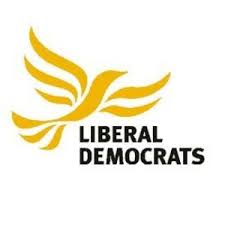
Where next for the Liberal Democrats?
Labour’s predicament is difficult, but it is the Liberal Democrats who face an existential crisis. What then should the Lib Dems do next? The overriding priority must be to restore trust in the party.
The general election results marked a damaging setback for Labour and a brutal defeat for the Liberal Democrats. In 2010, patterns of tactical voting which had built up over twenty years helped both parties retain enough marginals to deny David Cameron a majority. This time round, the firewalldisintegrated. Labour made a net gain of just two from the Conservatives, whilst the Liberal Democrats collapsed in suburban England and their south-western heartlands as the centre-left vote fragmented and centre-right voters moved over to the Tories. The SNP landslide in Scotland completed the rout.
It was difficult for both parties to fight against the ‘fear factor’ whipped up by the press and the huge amount of direct mail which the Conservatives poured into target seats, but there were also significant self-inflicted wounds. Not only did the Liberal Democrats alienate left-leaning voters by entering the coalition, but its leaders did as much as David Cameron and George Osborne to brand Labour as spendthrift and irresponsible – Nick Clegg by playing up the comparison between the UK and Greece, David Laws by brandishing the now-notorious note from Liam Byrne. By crediting the Tories with a ‘head’ and Labour with a ‘heart’, the party’s election campaign stoked fears of Labour and helped drive swing voters to the Conservatives. Worse, Nick Clegg’s insistence that a hung parliament was inevitable – in line with the pundits and the published polls – fostered complacency on the left and exacerbated tactical unwind.

Numbers that matter: Party leader satisfaction ratings and election outcomes
Satisfaction with party leaders of the two main parties would have predicted the outcome of the last nine UK general elections, including the most recent. This measure is worth looking at in more detail as voting intention polls led many forecasters astray in 2015.
Lord Ashcroft’s post-election poll (pdf here) showed the ‘three main reasons for voting’ for each political party in the 2015 UK general election. The biggest difference between parties was the number of people who voted on the basis that ‘the Party Leader would make the best Prime Minister.’ David Cameron, at 71%, far outstripped all his opponents, with Ed Miliband (the next most popular) coming in at 39%. On no other question did the Conservatives have such a large lead.

In new gods do we trust?
Do you expect the machine to solve the problems? In this wide-ranging interview with the Director of the Open Rights Group members of Open Democracy discuss bulk collection, state bureaucracies, the pre-crime era and trust. Rosemary Bechler (RB): Few of us understood the full import of what Ken Macdonald QC, former Director of Public Prosecutions, was saying at the Convention of Modern Liberty in 2009 when he referred to the then just published paper by Sir David Omand on the effect of modern data mining and processing techniques on intelligence work. Omand had stated that public trust in the organs of the state was going to be crucial, because from then on, ”Finding out other people’s secrets is going to mean breaking …

The Cambridge Election Podcast
From the University of Cambridge comes ELECTION, an insightful politics podcast; asking the questions that no one else is in the run-up to the British General Election with the most interesting people inside and outside the political arena. Here below are the latest podcasts.
#9 – Simon Szreter on conspiracy theories, trust in politics & solutions
It is said that trust in politics is at an all-time low. Our politicians are seen as out of touch and out to fill their own pockets. But when does mistrust become something more profound? This week we discuss this phenomenon in its most extreme form: conspiracy theories. What conspiracy theories do the British public believe? How commonplace are they, and how have they spread? Are people really so wrong to believe that the world is run by a secret elite? We interview a team of Cambridge researchers for answers. Then David turns to Professor Simon Szreter – social historian and founder of ‘History & Policy’ – to discuss how academics are trying to find ways of restoring the public’s faith in politics, and bridge the gap between the politicians’ narrow view of the world and how the voters see it. The team also discuss the television debates, politicians’ use (and abuse) of facts and figures, Tony Blair, and UKIP’s strategy for electoral success.

All for English devolution – but what about English democracy?
English devolution has emerged as a prominent feature of the 2015 general election campaign for a number of reasons. One is the ongoing process of devolution that has been taking place across the UK, with the formation of the assemblies for Northern Ireland and Wales, and the Scottish parliament. Another is the aftershock of the 2014 Scottish independence referendum. Throughout this time, England has also solidified as a distinct national political community.
Research indicates that over the past decade or so we have witnessed the progressive “Anglicisation” of the Westminster-based unionist parties. This means that Labour, the Conservatives, and the Liberal Democrats have all become more focused on England, in their political outlook.
But up until now, these parties have sought to avoid the complications and risks of large-scale internal organisational reform in England. They have lacked the appropriate party structures, leadership or explicit policy agendas to properly engage with the complex set of “English Questions”, which have emerged in a post-devolution UK.

Will a constitutional convention refound the British state?
If we are in a constitutional moment, it is time that ‘We the people’ have a right to settle what happens. A Constitutional Convention (CC) is one way to give the people this leading role. A CC is unlikely to refound the British state if it is set up to function as, in effect, an advisory council to the UK Parliament on a relatively narrow range of issues. The UK is in what the lawyer and political philosopher Bruce Ackerman would call a ‘constitutional moment’. There are, obviously, deep and urgent questions about the future of the Union and ‘devolution’. There are related questions about the second chamber of Parliament and the election itself is likely to raise again questions over the voting system. …

‘The first chapter’: Magna Carta and British socialism’s struggle for freedom in late Victorian and Edwardian Britain
The British socialist and labour movements of the late nineteenth- and early twentieth-century chose to view Magna Carta as an important symbol to invoke in their own struggles against the current system and its abuses. The Shadow Education Secretary, Tristram Hunt, recently announced that if Labour are returned in the upcoming general election every school will be required to teach the history of Magna Carta. He is keen to ensure that ‘every school child is taught the medieval past and modern power of this heroic charter’. Unsurprisingly, this declaration caused a variety of responses from those within his own party and those on the left more generally. For a number, Magna Carta should not be celebrated in this way, for …

The general election and constitutional reform: A look at the manifestos
One of the central problems with studying the politics of constitutional change in the UK is that the public does not care about the constitution. Unsurprisingly, constitutional reform does not figure prominently in the party manifestos for the May general election. That does not mean that these documents tell us nothing at all: they show that parties stick with their old policies; that the Conservatives seem to avoid any explicit reference to the constitution; and that all political parties appear to be willing to use the constitution to their own advantage.
In this blog post, I distil some of the constitutional issues in the party manifestos of the three largest parties in Westminster in the last parliament: the Conservatives, Labour and the Liberal Democrats (if there’s time, I will do another post on the smaller parties’ proposals). I define ‘constitutional’ issues as distinct from ‘distributional’ ones, which involve reallocation of resources (and the regulation of behaviour). Constitutional issues are about how decisions are made, not about the outcomes themselves, and should be neutral between, say, more or less progressive (or conservative) substantive policies.









